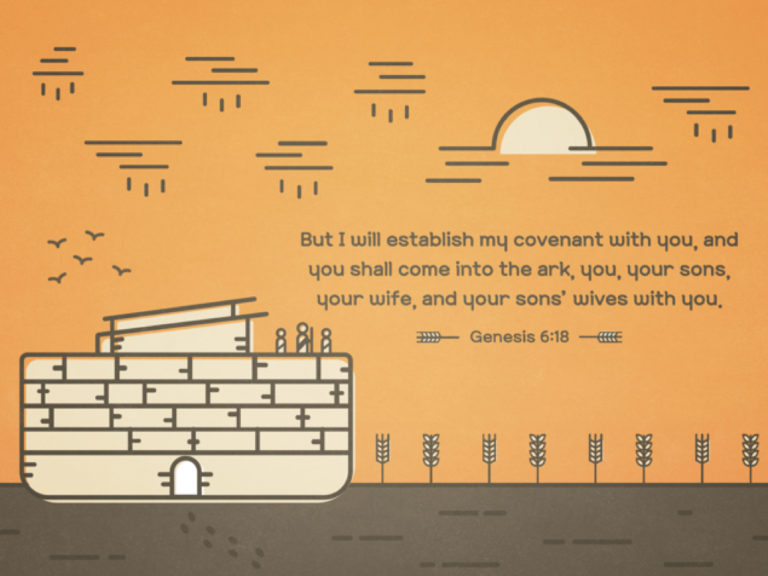The Law of Moses: A Covenant of Grace

| BY SEAN CAVENDER|
The word “covenant” is used approximately 321 times in the Bible. It appears several times in the book of Genesis (Genesis 6:18; 9:9-17; 17:2-4). A covenant is a “pact, compact, treaty, alliance, agreement, or pledge” (Enhanced Brown-Driver-Briggs Hebrew and English Lexicon), typically between two parties. Our God makes covenants with His people to bring a blessing to them.
One of the major covenants that God established in the Old Testament was with the people of Israel at Mt. Sinai (Exodus 19:5). A few things become very apparent about the nature of the covenant God established with Israel that will help us understand what God expects of Christians who live under the “new covenant” (Hebrews 8:7-13).
First, God’s covenant blessed Israel with salvation and liberation. God reminds Israel that His actions against Pharaoh and Egypt were to save them from their bondage (Exodus 19:4; cf. 6:2-6). The blessing of the old covenant was to bring the children of Israel out of their bondage and bring them into a good land that God had first promised to Abraham, Isaac, and Jacob. Moreover, God intended to establish a covenant with the Israelites because He wanted all the nations to see that He was the One true God (Exodus 9:14-16). The salvation and liberation Israel received rightfully caused them to worship and praise God (Exodus 15:1-21). God initiated the covenant with Israel because He wanted to save them from their burdens of slavery.
Second, God’s covenant required obedience. God said, “Now then, if you will indeed obey My voice and keep My covenant, then you shall be My own possession among all the peoples, for all the earth is Mine” (Exodus 19:5). The covenant God established was based upon a desire for Israel to be freed from slavery and confirmed as His special people. Israel in no way deserved this special treatment because of anything they had done. Even after crossing the Red Sea, they began to complain about God’s treatment toward them (Exodus 15:22-24; 16:2). They even desired that God would have let them die in Egypt (Exodus 16:3)! Israel did not deserve the blessing and covenant from God. The covenant was an act of God’s grace toward them! God’s amazing grace, filled with promises, brought an equally high demand for Israel: obedience and loyalty to keep God’s commands and statutes (Exodus 19:5; 15:26). Obedience does not make grace any less gracious; obedience is the most appropriate response to God’s grace!
Third, God’s covenant came with laws. As stated above, God expected Israel to keep His commandments and statutes. Many of those commands are found in Exodus 20-23, summed up with the giving of the Ten Commandments. Moses wrote down the laws God gave in the “book of the covenant” and read them before Israel (Exodus 24:3-7). And Israel said that they would do all that God had commanded (Exodus 19:8; 24:7). Sadly, many people view the idea of law as unfavorable and a form of bondage in and of itself. People assume that if we are under grace, nothing should be required and that any form of law is antithetical to grace. However, the Bible pictures the notion of law as an inherently good thing! Law-keeping is what leads to a blessed life (Psalm 1). The law brings a benefit to our innermost self, converting the soul, and brings a great reward (Psalm 19:7-11). Read Psalm 119, and you might learn that we often have a very shallow view of laws and commands.
God’s covenant with the children of Israel blessed them with freedom while requiring obedience and giving them a law to keep. We are no longer under that old law. The Law of Moses was nailed to the cross of Christ and has been done away (Colossians 2:14). We are now under the new covenant (Hebrews 8:7-13). The new covenant is a covenant of grace, just as the old covenant was. God has saved us by His grace (Ephesians 2:8-9). Jesus’ blood established the new covenant, and He has given us His law (Galatians 6:2). Even though we are under the system of grace, God expects us to obey His commandments, for we have been created anew in Christ for that purpose. We are God’s workmanship, created to do good works (Ephesians 2:10). God does not expect less of us now that we are under the new covenant. He expects more of us since we are under a better covenant with a better sacrifice! So let us always seek to rely upon God’s grace and be obedient to His will.


